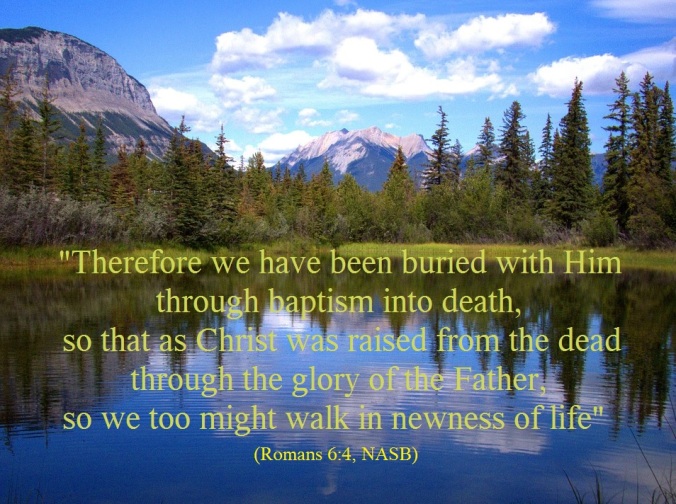“Go therefore and make disciples of all the nations…teaching them to observe all that I commanded you; and lo, I am with you always, even to the end of the age” (Matthew 28:19-20, NASB).
——————–
Contents:
1) Facing and Undergoing the Torment of the Cross (Tom Edwards)
2) Isaiah 53:5-7 (NASB)
——————–

-1-
Facing and Undergoing the Torment of the Cross
Tom Edwards
Though God in human flesh (Jn. 1:1,14; Matt. 1:23), yet Jesus was not exempt from the human frailness of that flesh. For He still became “hungry” (Matt. 4:2), “thirsty” (Jn. 19:28), “wearied” (Jn. 4:6), “tempted in all things as we are, yet without sin” (Heb. 4: 15) — and He could feel pain! But exchanging His glorious heavenly “form” for an inferior human body was necessary “because of the suffering of death…so that by the grace of God He might taste death for everyone” (Heb. 2:9); and “…that through death He might render powerless him who had the power of death, that is, the devil, and might free those who through fear of death were subject to slavery all their lives” (vv. 14,15).
In realizing what Jesus was up against in facing and undergoing the cross, we should be able to better appreciate the determination He had in going to that extreme to carry out His Father’s will. Paul also speaks of this in Philippians 2:8, when saying that Jesus “…humbled Himself by becoming obedient to the point of death, EVEN DEATH ON A CROSS” (emphasis mine). Of all the ways to die, being nailed to a cross to suffer for hours in excruciating torment would be a most difficult way to go. Yet, the Lord willingly went through with it! And this He indicates in John 10:17,18: “For this reason the Father loves Me, because I lay down My life so that I may take it again. No one has taken it away from Me, but I lay it down on My own initiative. I have authority to lay it down, and I have authority to take it up again. This commandment I received from My Father.” It is also in this same chapter that Jesus says of Himself, “I am the good shepherd; the good shepherd lays down His life for the sheep” (v. 11).
Prior to His crucifixion, just the mere thought of it had led to an inner torment for the Son of God. For instance, on the night of His betrayal, only hours away from being severely scourged and nailed to the cross, Jesus “began to be very distressed and troubled. And He said to them, ‘My soul is deeply grieved to the point of death…’” (Mark 14:33,34). He, therefore, “went a little beyond them, and fell to the ground and began to pray that if it were possible, the hour might pass Him by” (v. 35). Three times He prayed concerning this: “Father, if You are willing, remove this cup from Me; yet not My will, but Yours be done” (Luke 22:43). The Hebrew writer also speaks of the Lord’s impassioned appeals to His Father when “In the days of His flesh, He offered up both prayers and supplications with loud crying and tears to the One able to save Him from death, and He was heard because of His piety” (Heb. 5:7).
Notice, too, what Luke’s account brings out about this time in the garden: “And being in agony He was praying very fervently; and His sweat became like drops of blood, falling down upon the ground” (Luke 22:44).
Various versions refer to this sweat as being “like” drops of blood. But could that be said because it was not 100% blood, but a somewhat mixture of blood with sweat? If so, and which various scholars agree, it is then indicating that Jesus was actually experiencing hematidrosis, which is also sometimes written as hemathidrosis,” “hematohidrosis” and “hemidrosis.” It is defined as “a condition in which capillary blood vessels that feed the sweat glands rupture, causing them to exude blood, occurring under conditions of extreme physical or emotional stress” (Dr. Frederick Zugibe). Only in the gospel of Luke, who was a physician, is mention made of the Lord’s sweat becoming “like drops of blood.” According to Segen’s Medical Dictionary, Hematidrosis is “An extremely rare condition characterized by the sweating of blood, which is said to occur when a person is facing death or other highly stressful events. It has been seen in prisoners before execution and occurred during the London Blitz. … Hematohidrosis is attributed to rupture of the capillaries surrounding sweat glands, with oozing of blood into the glands and out the sweat ducts.”
As we had previously seen, Jesus was under extreme pressure while realizing His crucifixion was just hours away. And something else that indicates that, which we might have failed to take into consideration, is that it was not an overly warm night that was causing all that sweating. For just the opposite was true! It was a night cold enough for the need of warmth, as seen in John 18:18: “Now the slaves and the officers were standing there, having made a charcoal fire, for it was cold and they were warming themselves; and Peter was also with them, standing and warming himself.”
So could it be that it was “like” drops of blood because it was not 100% blood; but, rather, would have been a slight mixture of blood to the sweat, which then gave it a bloody appearance?
Another effect from hematidrosis is that it causes the skin to become “extremely tender and fragile” and, thus, even more sensitive toward pain. So that would certainly intensify the suffering on a cross also!
And what else would make the suffering even more difficult? Would it not be the prior flogging that was carried out most severely? According to Unger’s Bible Dictionary, “Crucifixion was preceded by scourging with thongs, to which were sometimes added nails, pieces of bone, etc., to heighten the pain, often so intense as to cause death.”
Incidentally, the word “excruciating,” which we use to express a most intense pain or torture, has its etymology around A.D. 1560-70 from the Latin “excruciatus,” which is a past participle of excruciare and means “to torment, torture.” The root of that word, “cruciare,” is derived from crux, which means “cross” (Webster’s Random House College Dictionary). So, again, we see the cross in connection with extreme pain.
We recall that after the Lord’s scourging, He was initially the One who was “bearing His own cross, to the place called the Place of a Skull, which is called in Hebrew, Golgotha” (Jn. 19:17). According to the custom of that time, it would not have been the entire cross, which might weigh over 300 pounds, but just the upper crossbeam that would be carried, and with the upright portion of the cross already in the ground where it would permanently remain. But even that lighter crossbeam, which could be from about 75 to 125 pounds (New World Encyclopedia), Jesus was not able to continue carrying, due to the intense scourging, loss of blood, and physical weakness it had led to. So Simon of Cyrene was “pressed into service” to bear the Lord’s cross (Matt. 27:32). Simon was “a passer-by coming from the country” (Mark 15:21), and they “placed on him the cross to carry behind Jesus” (Luke 23:26).
About 1,000 years prior to the Lord’s crucifixion, the means of His death was already indicated in prophecy. Numerous verses in Psalm 22 foretell the crucifixion scene. And though at that time the Law of Moses spoke of execution by the sword (Exod. 32:27,28), by fire (Lev. 21:9), and by stoning (Lev. 20:2), yet Psalm 22:16 indicates the future way that Jesus would be executed: “For dogs have surrounded me; A band of evildoers has encompassed me; They pierced my hands and my feet.”
Herodotus, the “father of history,” who was born about 484 B.C. and a contemporary of Socrates, speaks of crucifixion as originating with the Persians (Hist. i.128.2; iii. 132.2, 159.1). The Britannica Encyclopedia states that “In 519 BC Darius I, king of Persia, crucified 3,000 political opponents in Babylon.” Rome’s use of crucifixion, which they picked up and “perfected” from the Persians, is said to have not been until the first century B.C.
But, as we have seen, God knew even before the world began how Jesus would be put to death and the events surrounding that.
So may the Lord’s willingness to submit to such extreme agony in order that an atonement could be made for every lost soul cause us to realize even more the great love that God has for us and His desire for all to be saved! By His death, Jesus made it possible that our greatest need, which is the forgiveness of sins, can be met! And that must have been one of the reasons why the Hebrew writer says about Christ that “for the joy set before Him endured the cross, despising the shame, and has sat down at the right hand of the throne of God” (Heb. 12:2). Jesus’ love for us could not be hindered even though it would involve torturous sufferings! He loved us that much — and still does!
(All Scriptures from the NASB.)
——————–
Isaiah 53:5-7
“But He was pierced through for our transgressions,|
He was crushed for our iniquities;
The chastening for our well-being fell upon Him,
And by His scourging we are healed.
All of us like sheep have gone astray,
Each of us has turned to his own way;
But the LORD has caused the iniquity of us all
To fall on Him.
He was oppressed and He was afflicted,
Yet He did not open His mouth;
Like a lamb that is led to slaughter,
And like a sheep that is silent before its shearers,
So He did not open His mouth” (NASB).
——————–
The Steps That Lead to Eternal Salvation
1) Hear the gospel, for that is how faith comes (Rom. 10:17; John 20:30,31).
2) Believe in the deity of Christ (John 8:24; John 3:18).
3) Repent of sins (Luke 13:5; Acts 17:30).
4) Confess faith in Christ (Rom. 10:9,10; Acts 8:36-38).
5) Be baptized in water for the remission of sins (Mark 16:16; Acts 2:38; 22:16; Rom. 6:3,4; Gal. 3:26,27; 1 Pet. 3:21).
6) Continue in the faith, living for the Lord; for, if not, salvation can be lost (Heb. 10:36-39; Rev. 2:10; 2 Pet. 2:20-22).
——————–
Tebeau Street
CHURCH OF CHRIST
1402 Tebeau Street, Waycross, GA 31501
Sunday services: 9:00 a.m. (Bible class); 10 a.m. & 5 p.m. (worship)
Wednesday: 7 p.m. (Bible class)
evangelist/editor: Tom Edwards (912) 281-9917
Tom@ThomasTEdwards.com
http://thomastedwards.com/go (Older version of Gospel Observer website without pictures, but back to March 1990)
http://tebeaustreetchurchofchrist.org/
http://ThomasTEdwards.com/audioser.html (audio sermons)
















